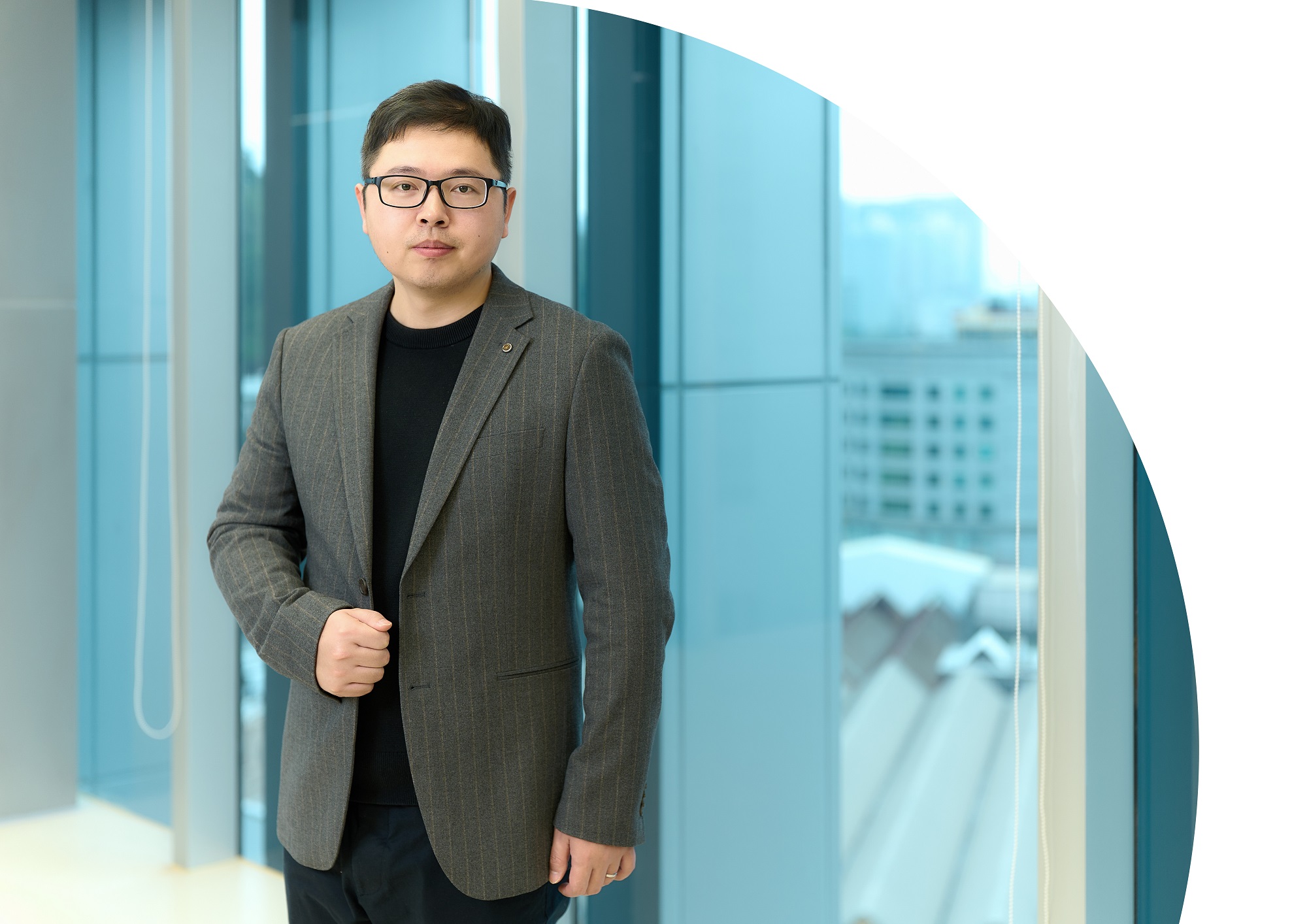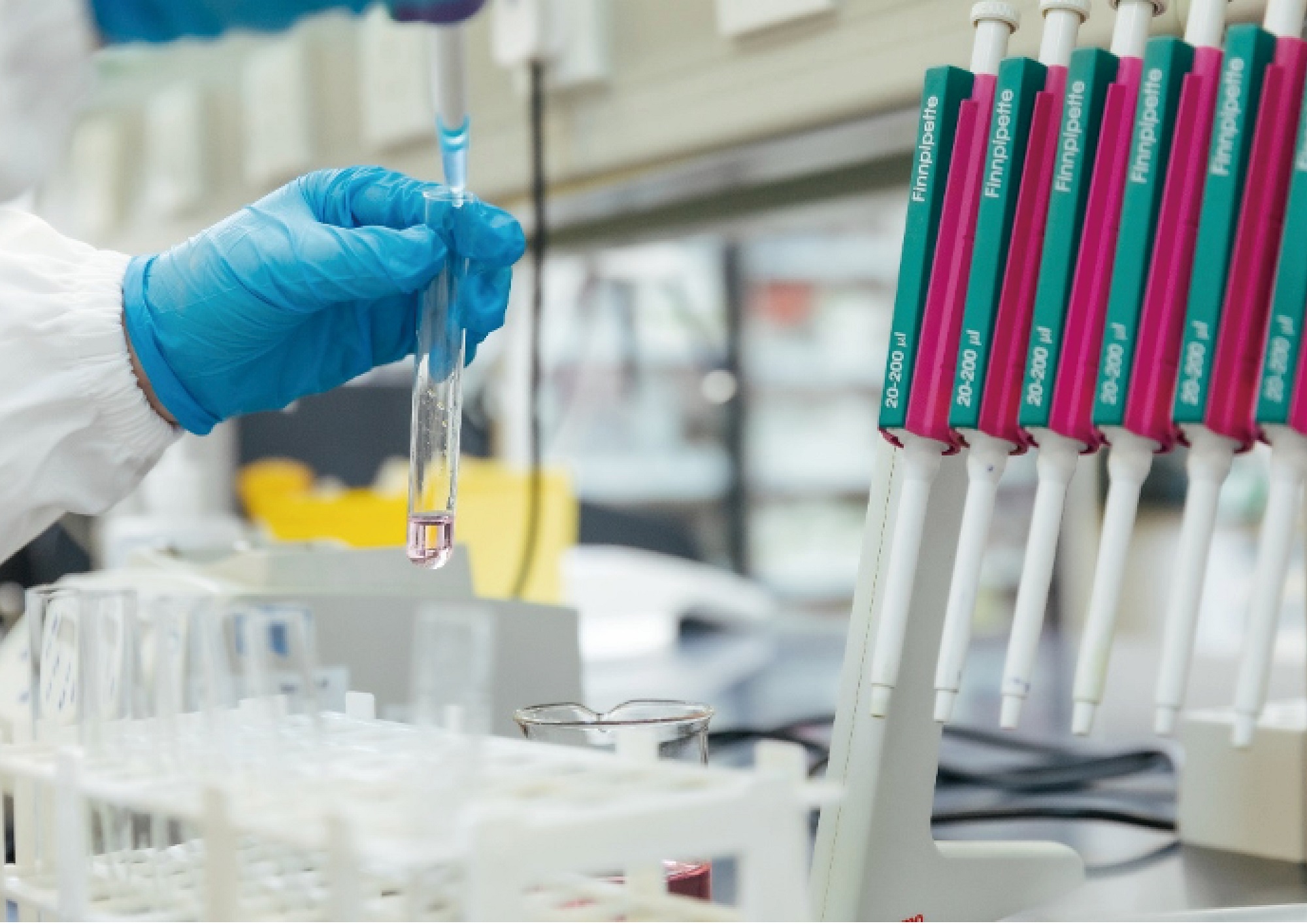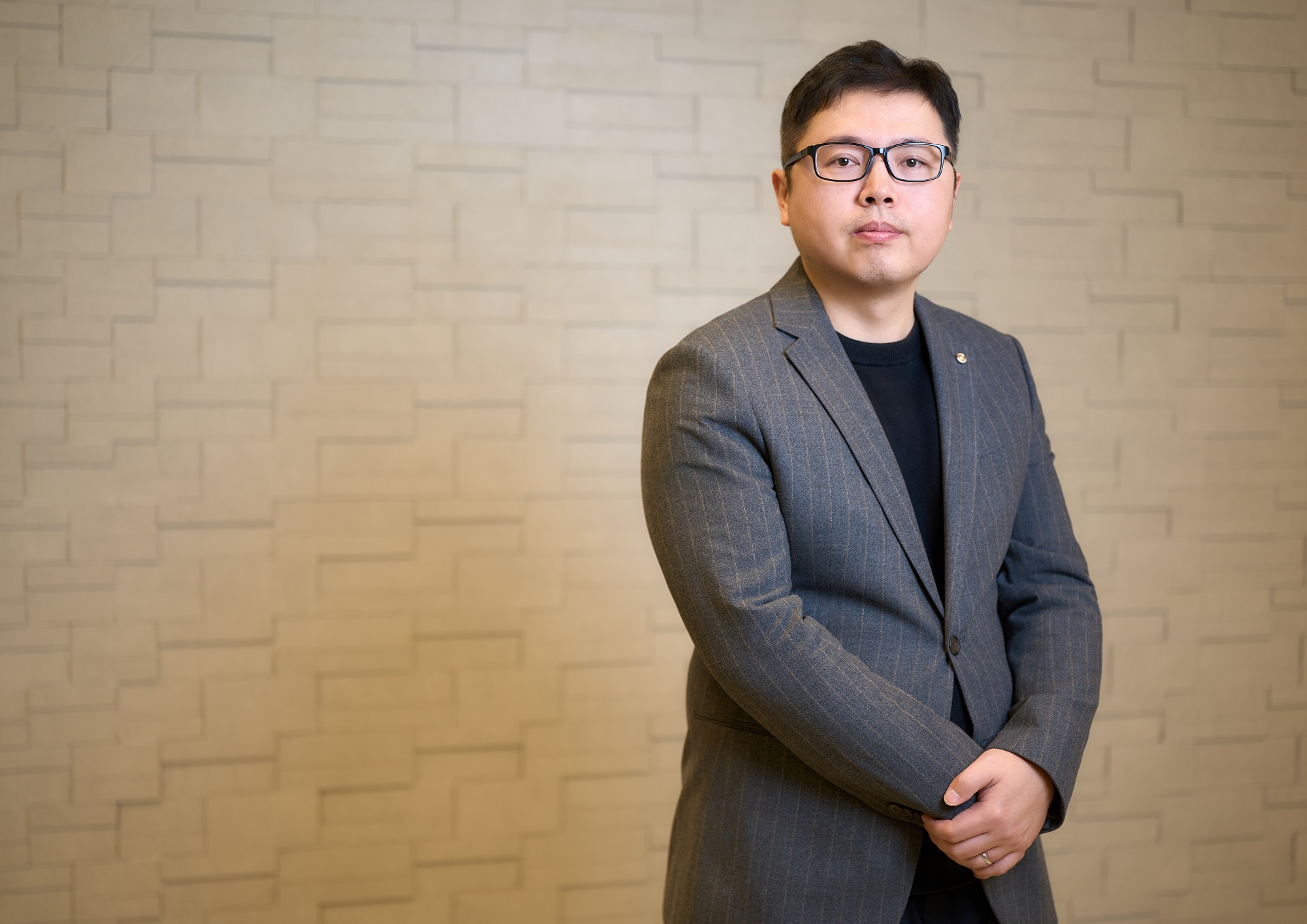

At the Centre for AI Driven Drug Discovery of the Faculty of Applied Sciences, Professor Wei Leyi intently studies his computer screen displaying his latest research findings. This is his daily routine, a microcosm of his research career. Through countless such days, he has established himself as a leading expert in artificial intelligence and bioinformatics, accelerating the identification of biomolecular structures and the development of new drugs. To date, Professor Wei has published over 140 high-impact SCIE papers, has been recognised for four consecutive years as one of Clarivate’s top 1% most-cited scientists across multiple disciplines, and has been listed among Stanford University’s top 2% of global scientists. With such remarkable achievements, what has driven his unwavering dedication to scientific research for over a decade?
A Maestro of Interdisciplinary Research
Professor Wei’s academic journey began in mathematics, but he boldly transitioned to computer science during his postgraduate studies. His supervisor at that time was actively involved in bioinformatics research, utilising AI to address complex issues in life sciences. This exposure provided him the opportunity to explore interdisciplinary research. As early as 2010 – long before deep learning became mainstream – he was already fascinated by the affordances of AI in uncovering patterns hidden within biological big data. Despite his non-biology background, he embraced the challenge head-on. “My approach to learning is problem-driven,” he explains. “Whenever I need a specific piece of knowledge, I delve into it. For instance, when studying proteins, I begin with their fundamental properties. If I encounter an unfamiliar concept, I look it up and find a way to solve it.”
Currently, Professor Wei’s research primarily revolves around two interconnected areas: biomacromolecule sequence analysis, which lays the groundwork for understanding disease-related genes, and biomedical drug development, which aims to create effective therapeutic solutions. He likens these two aspects to a lock-and-key system: “The former is akin to studying the intricate shape of a door lock; the latter is about crafting the perfect key to unlock it. My role is to refine these keys, ensuring they fit precisely and effectively to open new possibilities for various treatments.” Transitioning from biomacromolecule sequence analysis to drug development was not a smooth path. In 2020, the COVID-19 pandemic became a catalyst for change. As the world urgently sought effective treatments, Professor Wei acknowledged the need to accelerate drug discovery. AI could be more than a research trend; it could be a potential lifesaver. Determined to step out of his comfort zone, he redirected his research toward biopharmaceutical development, embracing it as his mission.

Bringing AI Drug Discovery to Real-World Applications
Throughout his decade-long academic career, Professor Wei has navigated numerous challenges. His team has achieved breakthroughs published in top-tier scientific journals, including Nature sub-journals. He serves as an associate editor for Frontiers in Genetics and leads prestigious research projects funded by the National Natural Science Foundation of China. When asked whether these accolades bring pressure, he laughs, “Rather than focusing on honours, I focus on the research's contributions to the academic field.”
Despite the affordances of AI in identifying potential drug targets and reducing development costs, researchers in drug discovery often face two major challenges: data quality and model interpretability. To address data quality issues, Professor Wei advocates for techniques such as data augmentation and transfer learning to enhance model robustness. He also emphasises collaboration with pharmaceutical companies and research institutions to integrate larger datasets. For model interpretability, he has designed AI models that incorporate chemical reaction mechanisms, ensuring that each decision-making step is traceable. This has effectively demystified AI in drug discovery.
To make deep learning tools more accessible to non-computational researchers, Professor Wei developed DeepBIO, a one-stop online platform for AI-powered drug research. With its user-friendly interface, researchers can simply input raw data and choose from over 40 advanced models to obtain results and visualisations. This innovation lowers technical barriers, reduces equipment costs, and enhances practical usability. Professor Wei hints that an upgraded version is in the pipeline, aiming to further advance drug research and industry development.
Decoding the Secret to Highly Cited Papers
Professor Wei’s frequent recognition in global scientist rankings and his steadily increasing citation count underscore the academic community’s keen interest in his work. His research is notable for pioneering the integration of AI with biology, an interdisciplinary approach that continues to be a prominent research topic. Scholars frequently search for and cite his papers when exploring related subjects.
However, Professor Wei believes that true foresight involves not merely chasing trends but possessing a profound understanding of one’s field. “Every research topic will eventually gain attention if it is scientifically valuable,” he asserts. That said, developing foresight is not easy. He sees it as a skill honed through long-term scientific training. To cultivate this mindset, his research team holds weekly meetings, where members present and analyse one or two recent research highlights. These discussions foster intellectual exchange, keeping the team updated on the latest innovations and challenges.
In today’s rapidly evolving scientific landscape, staying at the forefront of research is crucial. Professor Wei actively engages in international academic exchanges and closely monitors leading scientific journals. He follows Nature’s annual list of the top ten key scientific developments, which also helps broaden his perspective and drive his research beyond existing boundaries.
Thriving in Macao’s Globalised Research Environment
Having served in academia across various Chinese cities and in Tokyo, Japan, Professor Wei found a perfect match for his pursuits when MPU established the Centre for AI Driven Drug Discovery. He seized the opportunity to join, drawn by the alignment of their mission with his own. Reflecting on his diverse experiences, he is fond of the academic environment unique to Macao. The city’s multicultural and collaborative atmosphere is conducive to creativity and innovation, making it an ideal place for interdisciplinary studies.

At the intersection of diverse cultures and ideas, Macao provides a distinctive geographical advantage and an internationalised research ecosystem. This setting enables scientists like Professor Wei to connect with global experts and advance research frontiers. “Here, I can stand with elites from around the world, harnessing our collective efforts to enhance the integration of AI and pharmaceutical research,” he shares. “The Macao SAR government offers strong support to technological innovation, especially in life sciences and AI, which fosters the flourishing of the fields.” Looking ahead, Professor Wei hopes to bring forth more innovative solutions to drug development in collaboration with his peer colleagues at MPU, contributing to the global advancement of medical technology from Macao.